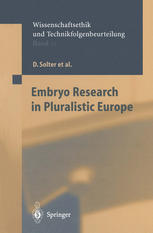

Most ebook files are in PDF format, so you can easily read them using various software such as Foxit Reader or directly on the Google Chrome browser.
Some ebook files are released by publishers in other formats such as .awz, .mobi, .epub, .fb2, etc. You may need to install specific software to read these formats on mobile/PC, such as Calibre.
Please read the tutorial at this link: https://ebookbell.com/faq
We offer FREE conversion to the popular formats you request; however, this may take some time. Therefore, right after payment, please email us, and we will try to provide the service as quickly as possible.
For some exceptional file formats or broken links (if any), please refrain from opening any disputes. Instead, email us first, and we will try to assist within a maximum of 6 hours.
EbookBell Team

4.4
102 reviewsRecent advances in techniques and understanding in the fields of genetics, embryology and reproductive biology have opened up new ways to treat a wide range of medical problems. They range from new options for infertility treatment and pre-implantation genetic diagnosis to stem-cell-based therapies for debilitating diseases. Since all these approaches involve the manipulation of human gametes, embryos or embryonic cells, and could also permit more contentious uses, they have stimulated a controversial debate as to what aims are desirable and to what extent experiments on human embryos are morally permissible, if permissible at all. The situation is further complicated by the fact that scientific projects are increasingly realized through international co-operation and that patients are increasingly ready to seek morally contentious medical treatment wherever it is available and thus to bypass national legislation. In view of this situation the Europäische Akademie assembled a temporary interdisciplinary project group in which scientists from universities and non-university research organizations in Europe working on the relevant subjects were brought together and charged with establishing a knowledge base and providing suggestions for long-term solutions that would be acceptable for society. Presented here are the results of this project, ranging from a discussion of the theoretical and practical possibilities in human-embryo experimentation and its alternatives in research on adult stem cells, a comparison of the situations and prospects of regulation of embryo research in Europe, a survey of European public attitudes, and a philosophical analysis of the arguments and argumentative strategies used in the debate.